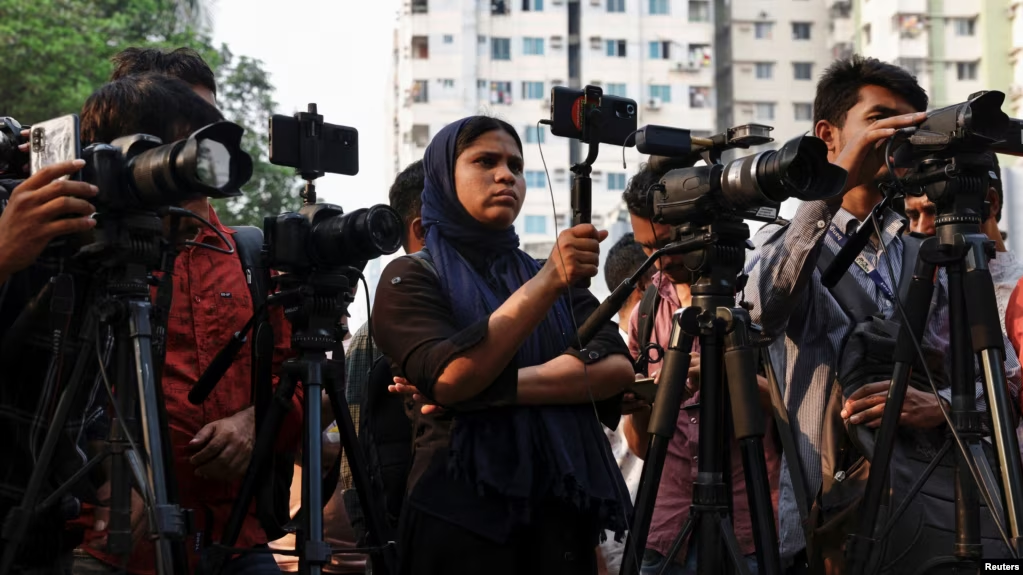Bangladesh’s interim government has stripped press credentials from more than 50 journalists in a sweeping move that media watchdogs denounce as an “alarming” assault on press freedom during the country’s volatile political transition.
The Information Ministry’s actions occurred in two waves, with over 20 senior journalists losing credentials on October 30, followed by 30 more on Sunday. Among those affected are prominent figures including Zafar Wazed, former director-general of the Press Institute of Bangladesh, former press minister Shaban Mahmud, and journalists from major outlets such as ATN News, Ekattor TV, and The Dhaka Times.

Media observers note the revocations appear to target journalists sympathetic to the Awami League, which lost power in August when Prime Minister Sheikh Hasina resigned and fled the country amid student-led protests. Nobel laureate Muhammad Yusuf now heads an interim government charged with organizing new elections.
“Such decisions threaten the growth of opposition media,” said Celia Mercier of Reporters Without Borders (RSF). “This will encourage self-censorship, and critical space in media will shrink.” The Committee to Protect Journalists demanded the interim authorities “safeguard press freedom during this critical period of the country’s political transition.”
The crackdown follows a turbulent period for Bangladesh’s press. During the protests that precipitated Hasina’s fall, five journalists were killed, with others reporting beatings and shootings. The country ranks 165th out of 180 nations on RSF’s World Press Freedom Index, with the organization describing Bangladesh as a “hostile” environment for journalists.
The deteriorating media climate emerged during Hasina’s final months in power, when her government introduced the Cyber Security Act allowing fourteen-year prison terms for journalists publishing content deemed hostile to the prime minister or ruling party. The current credential revocations suggest continued pressure on press freedom despite the change in leadership.
The Bangladesh Embassy in Washington referred queries to the Ministry of Information and Broadcasting, which has not responded to requests for comment on the widespread removal of press credentials that threatens to further constrain independent journalism in a nation already struggling with media freedom.
VOA



